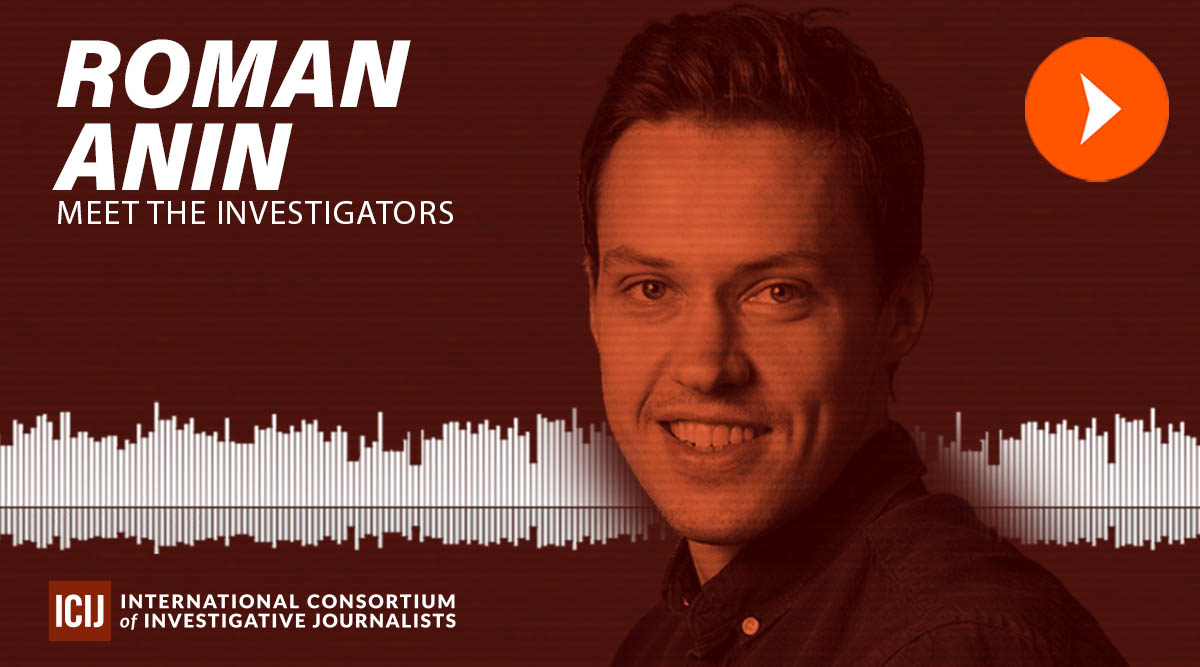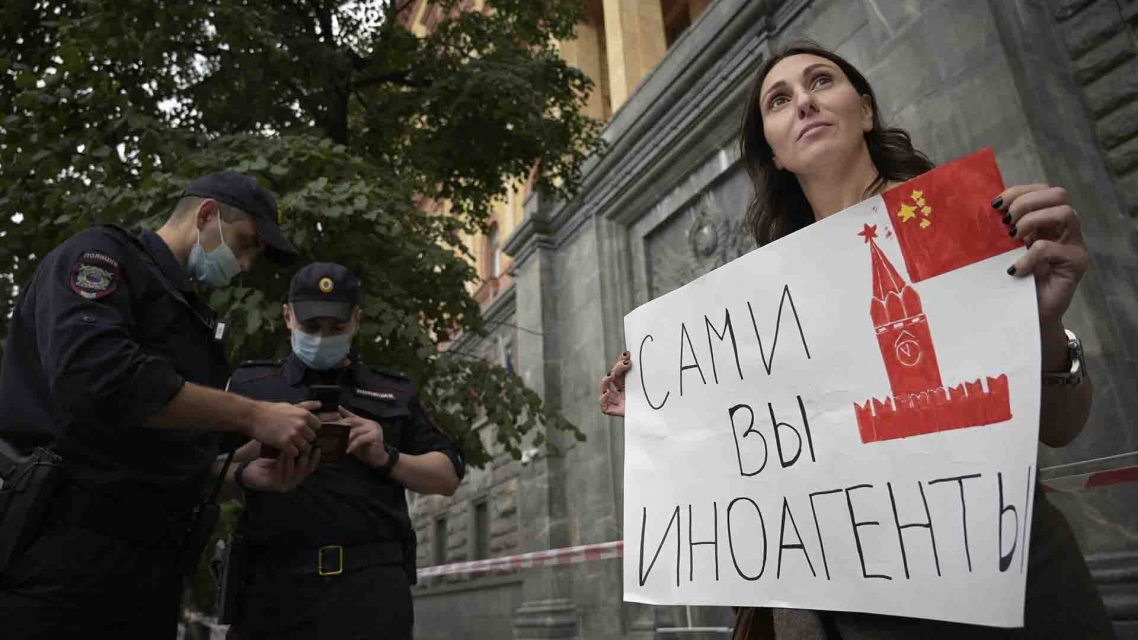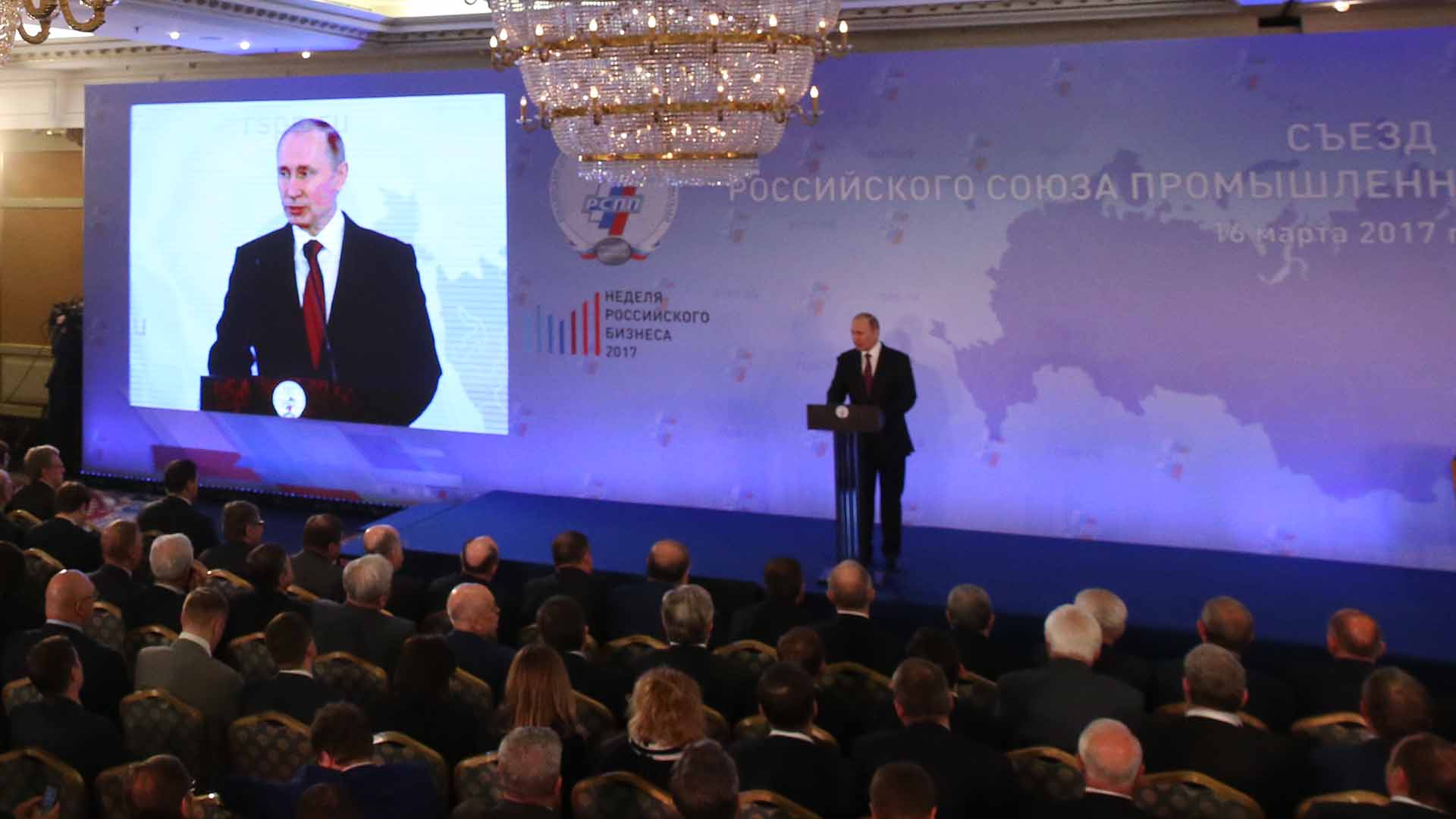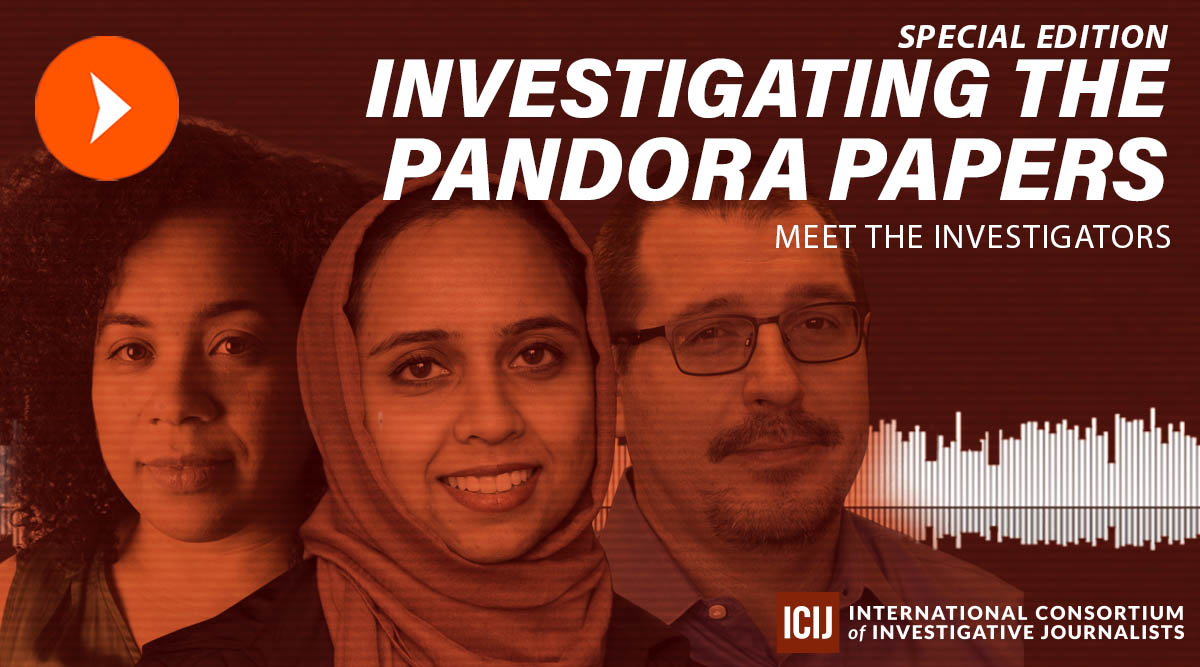MEET THE INVESTIGATORS
‘There is no freedom and there is no press’: How one Russian reporter approaches journalism in the age of Putin
Roman Anin shares his journey to investigative journalism, and talks about the dangers of working as a reporter in Russia, the challenge of holding powerful people accountable in the face of constant threats.

The International Consortium of Investigative Journalists collaborates with hundreds of members across the world. Each of these journalists is among the best in his or her country and many have won national and global awards. Our monthly series, Meet the Investigators, highlights the work of these tireless journalists.
In April, we spoke with Roman Anin, a Russian reporter who founded and runs IStories, short for “Important Stories,” a nonprofit news outlet focused on publishing investigative journalism. Anin has been labeled a “foreign agent” and the head of an “undesirable organization” by Russian authorities for his dogged reporting critical of President Vladimir Putin and his allies. Before IStories, Anin worked for the independent Russian newspaper Novaya Gazeta, which partnered with ICIJ on some of the earliest investigations into offshore finance.
ICIJ’s award-winning Meet the Investigators series is emailed exclusively to ICIJ’s Insiders each month before being published on ICIJ.org, and is one of a number of ways we like to thank our community of supporters who are so integral to our independent journalism. You can join our Insiders community by making a donation to ICIJ. Thanks to all our ICIJ Members who have shared their stories with us, and to all our supporters for helping ICIJ continue its work.
Nicole Sadek: Welcome back to Meet the Investigators from the International Consortium of Investigative Journalists. I’m ICIJ’s editorial fellow and, today, your host Nicole Sadek.
Since this series launched, we’ve spoken to dozens of ICIJ members who are among the most distinguished journalists in the world. Today is no different. I’m speaking with a reporter who has a raft of accolades, including the Knight Trailblazer Award, a European Press Prize and various prestigious Russian journalism awards. But he also has an equally long, if not longer, list of people who’ve put a target on his back for simply doing his job. And that’s why he keeps much of his work under wraps.
Roman Anin: I don’t disclose the location of myself and the newsroom for security reasons.
Nicole: That’s Roman Anin, a Russian journalist who founded and runs the groundbreaking news outlet IStories. Roman has been working alongside ICIJ in its investigations into offshore finance since 2013. But journalism hasn’t always been his passion.
Roman: I was born in Moldova, and until [age] 17, my dream was to become a professional soccer player. But then when I was 17, my family moved to Russia because Moldova was a very poor country and it was difficult to find a job there, so I didn’t know how I would continue my soccer career. And one day I was lying on the sofa and watching a soccer game on TV, and the commentator was really bad. So I was watching the game and I was thinking that this guy knows nothing about my favorite game, and that is when I realized that I can try to become a commentator and maybe do this job better than this guy because I at least I know the game. That’s when I decided to become a journalist.
Nicole: After enrolling at Moscow State University to study journalism, Roman had to get some real-world experience.
Roman: One of my friends said that the sports section of Novaya Gazeta was looking for interns, and I knew nothing about Novaya Gazeta, you know, but I decided to come there. And I remember that I was really nervous because I thought that they would ask me, that they would be asking me, you know, things about, I don’t know, like different teams, different championships, kind of testing my skills. But the very first questions that I heard from them, from actually my future editor of the section, was, “Do you like beer?” And I’m like, “Well, yeah.” So we went, we had a couple of beers, and that’s how I became part of Novaya Gazeta’s sports section. And I worked there for two years until 2008, when suddenly the war in Georgia started.
[Audio clip 00:00 – 00:11] Al Jazeera: It was a war that lasted only six days but which had a profound effect on a country and a region on the edge of Europe.
Nicole: Although it was a brief conflict, it received widespread coverage.
Roman: It was interesting because it was summer and the majority of experienced reporters there were on vacations. And I was one of the few reporters in the newsroom and the editors asked me whether I wanted to go to Georgia to cover the war. And I said, “Yes.” And I went there. And when I got back, they actually offered me to move to the investigative section, and that is how I became an investigative reporter.
Nicole: Nearly 15 years later, Roman runs his own nonprofit newsroom IStories, which he says stands for Important Stories. The IStories core staff is based outside of Russia with freelancers working inside the country. He came up with the idea for the online investigative outlet when he was finishing up a Knight Journalism Fellowship at Stanford University in 2019.
Roman: The goal is to tell important stories to the audience. It kind of unites two ideas that I had in my mind. The first idea is obvious and simple. You know, investigative reporting is crucial to keep the powerful accountable. But there was a second idea, and actually it came to my mind in Stanford. You know or you probably know that in the last decades, the audience has been losing its trust in the media, so what we do these days is we care more about traffic than audience, and we bombard people with 50 or 60 or 100 news every day, and the majority of this news are useless. Bombarding people with news is really bad for their health. So that is why we are called Important Stories because we try to publish on those news and those stories that we believe are really important for people. In terms of media management, it’s a very bad strategy, but in terms of care about people, it’s the best.
There is no freedom, and there is no press. In the ideal world of Vladimir Putin, there is no independent media in Russia.
Nicole: Since Vladimir Putin commanded forces to invade Ukraine in late February, the Russian president has run a concerted campaign to silence independent media. He even labeled IStories an “undesirable organization.” Roman, what does that mean for you?
Roman: It’s a crime to be, to head an undesirable organization, and I can be sentenced to six years of prison for the work that I do, so for journalism. For every reporter who works for IStories, every reporter can be fined for cooperation with an undesirable organization, and the second time if they continue working or cooperating with an undesirable organization, they can be sentenced to four years of prison. It is also forbidden to repost all our stories, so if anybody in Russia reposts our story, tweet or every piece of information that we produce, it can be seen by Russian authorities as cooperation with an undesirable organization, and again, this person or the reader can be fined and then sentenced. We are also blocked because it’s prohibited to spread the information of undesirable organizations, so we’re blocked in Russia, and people can reach us only through VPN.
Nicole: How would you describe the state of press freedom in Russia today?
Roman: There is no freedom, and there is no press. In the ideal world of Vladimir Putin, there is no independent media in Russia. There is no media that criticizes him or his cronies. But of course, after the war started, the Kremlin kind of has increased its pressure on the media. And today, almost every independent media in Russia, or I would say every independent media in Russia, is either blocked or shut down.

Nicole: What security precautions do you and your colleagues take?
Roman: I’m the only reporter who uses [a] byline. All others, they have to publish their stories anonymously because again if law enforcement sees that, if people from the law enforcement see that our reporters continue to cooperate with us, then they can be sentenced. We also can’t really take interviews because it might be considered as a cooperation with an undesirable organization as well, so all our experts and people we talk to are anonymous in our stores.
Nicole: Why do you use your byline?
Roman: Well because I’m the head of the organization, and I I think it’s important to be public and say that we’re not afraid of all [those] restrictions and all [those] labels. And the second reason is that there is a different criminal case ongoing against me in Russia that was started even before the war and before we were proclaimed undesirable. And I thought, you know, like, well, what’s the difference to have one or two criminal cases or three against you?
Nicole: The case Roman is talking about started on April 9, 2021, when Russian authorities raided Roman’s apartment and office in connection to a story he had written five years prior about a Putin ally who was using a luxurious yacht. Roman, can you talk me through what happened?
Roman: I was going to a swimming pool. In a minute after I exited from my house, I saw that somebody was running after me and I thought that it was a robber or something like that and I was prepared to fight. But then the guy came to me and said that he is from the FSB, which is the main Russian Secret Service. And he said that they’re going to conduct a search in my apartment. The search lasted for about seven hours, and they ended in the midnight. And then the investigator said that he would take me to the investigative committee, and I knew it was illegal because you can’t interrogate witnesses in the nighttime. Well, but he said that if I don’t go voluntarily, then they will just take me to the investigative committee. So I was detained for a couple of hours. Then they let me go. I was planning to go on vacations even before the search and interrogations in May, and I went to Kyiv. I spent some time there. And then a number of sources told me that I should better stay there because there was a big risk that Russian secret services can arrest me when I come back. And since then, I’m abroad.
Nicole: After this incident, Roman actually found out that authorities had been surveilling him for several years. But it didn’t come as a surprise. Even in 2017, during ICIJ’s Paradise Papers investigation, Roman told VICE News documentarians that he went the extra mile to stay undetected by Russian authorities.
[Audio clip 28:10 – 28:34] VICE: Every day, you know, my day is different. I don’t wake up at the same time, and I don’t get out of my home at the same time. I usually take different routes. So one day I come to my office with car. Another day, I come with metro. The day after tomorrow, I took metro, then a bus and then I walk.
Nicole: Roman’s attention to security is not for naught. According to the Committee to Protect Journalists, 25 reporters have been murdered in Russia since 2000, not including several others whose reasons for death have not been confirmed. The fraught situation has been a part of Roman’s career from the very beginning. During his first year as a reporter for Novaya Gazeta, his colleague Anna Politkovskaya, a revered Russian journalist critical of the Kremlin, was shot and killed in a contract-style killing.
In those early days when I was naive, I thought that, you know, journalists are doing a great job … the stories that they publish are so important. So why would anybody kill a journalist?
Roman: I remember very well the day when I heard the news. I was in Yaroslavl, a very beautiful ancient city in Russia. And I was playing billiards with my father, and then I got a call from a colleague who told me that Anna Politkovskaya was killed. And I was so shocked and surprised. In those early days when I was naive, I thought that, you know, journalists are doing a great job. You know, the things that they, the stories that they publish are so important. So why would anybody kill a journalist?
Nicole: The stakes of being in this line of work in Russia are astronomical. And it’s become an issue of renewed focus since Russia’s war on Ukraine started in late February. With the world’s attention back on Russia, ICIJ has launched the Russia Archive, a project that brings together previous Russia-related exposés and new investigations into the hidden wealth of the Putin regime’s ruling elites. Like all of ICIJ’s projects, it brings international partners together. Roman, what is it like working in a collaborative community?
Roman: It’s a great opportunity to work with your colleagues from Australia, from Japan, from South America and from many, many other countries. And of course, it’s, I mean, it teaches you a lot because you, you know, you, you work shoulder by shoulder with your colleagues from other countries, and you get some skills from them, they get some skills from you. And of course, it makes your stories better because, you know, the crime is international these days. And if journalists don’t unite their efforts to investigate those criminals or corrupt officials, you know, then they are not effective. And I think that these days, the international community of journalism is way more effective than the international community of law enforcement because we’re faster, we’re more creative and we use more skills. Yes, we don’t have all the instruments that law enforcement passed. But in terms of cooperation skills, we’re really better.
Nicole: What was your experience collaborating with other journalists in last year’s Pandora Papers investigation?
Roman: Well, it was like this great, you know, cooperation and investigation very similar to Panama Papers. We spent about a year investigating all the Russian names that we saw in the leak, and in the end we published the story. Probably the only difference is that when we published Panama Papers, there was just three of us and we worked for Novaya Gazeta. These times, there were about 10 reporters from IStories and we had to evacuate everybody from Russia, I mean everybody who was working on this story, from Russia on the eve of publication because there was a great risk that secret services would come with searches or even arrest people working on this project.
Nicole: What piece of advice would you give to newer reporters?
Roman: Woah that’s difficult. Never study media? No, but I’m joking. I’m constantly joking that the professional disease of a journalist is narcissism. All of us think a lot about ourselves. I think it’s really important these days to kind of remind all the time to ourselves that we are a team, and that we need to be together, we need to stay strong. We really gotta think about big goals and why we do that. And in our case, it’s easy because we know why the stories that we publish are important and why it is important for the Russian audience to know and read them.
Nicole: Those are some great tips. I want to thank Roman for joining me today and wish him all the best as he continues to cover those important stories.
You can find ICIJ’s Russia Archive stories at icij.org, and don’t forget to share this episode on social media using the hashtag #MeetTheInvestigators.
Meet the Investigators is a production of the International Consortium of Investigative Journalists. This episode was produced and edited by me, Nicole Sadek, with help from Hamish-Boland Rudder. We’ll be back again next month.
If you’re a fan of our Meet the Investigators series, please consider making a donation to support ICIJ. Not only will your donation help support our work with journalists like Roman, but as an ICIJ Insider, you’ll also receive sneak previews, access to exclusive chats with reporters and behind-the-scenes content like this delivered straight to your inbox. Donate today, and support independent investigative journalism.



